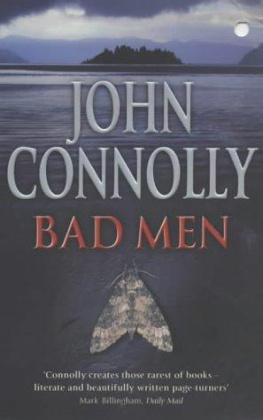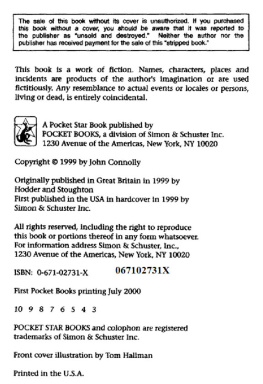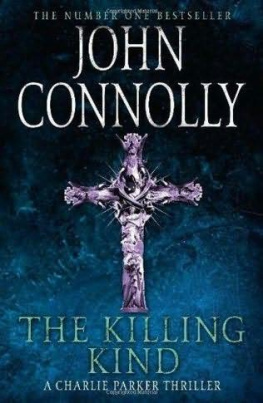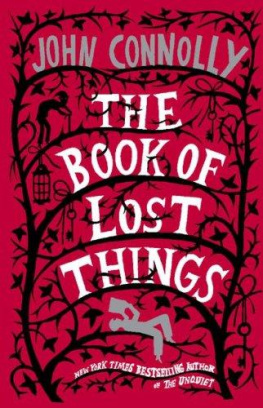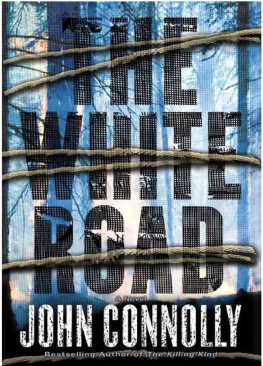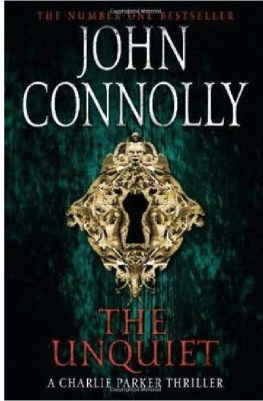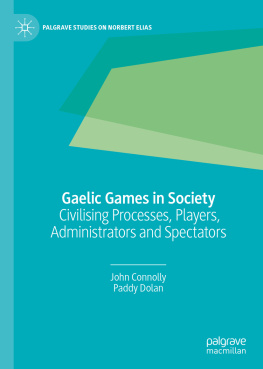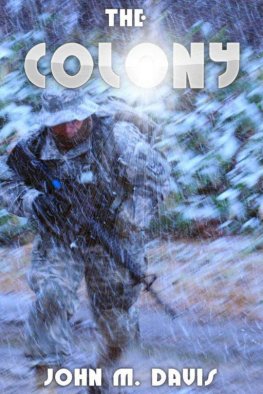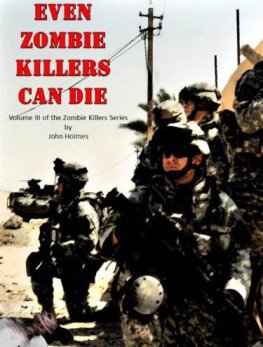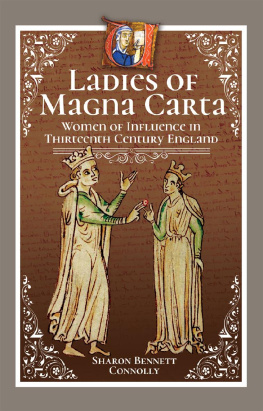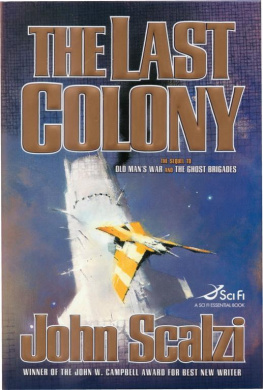John Connolly - Bad Men: A Thriller
Here you can read online John Connolly - Bad Men: A Thriller full text of the book (entire story) in english for free. Download pdf and epub, get meaning, cover and reviews about this ebook. year: 2004, publisher: Atria, genre: Detective and thriller. Description of the work, (preface) as well as reviews are available. Best literature library LitArk.com created for fans of good reading and offers a wide selection of genres:
Romance novel
Science fiction
Adventure
Detective
Science
History
Home and family
Prose
Art
Politics
Computer
Non-fiction
Religion
Business
Children
Humor
Choose a favorite category and find really read worthwhile books. Enjoy immersion in the world of imagination, feel the emotions of the characters or learn something new for yourself, make an fascinating discovery.
- Book:Bad Men: A Thriller
- Author:
- Publisher:Atria
- Genre:
- Year:2004
- Rating:5 / 5
- Favourites:Add to favourites
- Your mark:
- 100
- 1
- 2
- 3
- 4
- 5
Bad Men: A Thriller: summary, description and annotation
We offer to read an annotation, description, summary or preface (depends on what the author of the book "Bad Men: A Thriller" wrote himself). If you haven't found the necessary information about the book — write in the comments, we will try to find it.
Bad Men: A Thriller — read online for free the complete book (whole text) full work
Below is the text of the book, divided by pages. System saving the place of the last page read, allows you to conveniently read the book "Bad Men: A Thriller" online for free, without having to search again every time where you left off. Put a bookmark, and you can go to the page where you finished reading at any time.
Font size:
Interval:
Bookmark:
Synopsis
Three hundred years ago, the settlers on the small Maine island of Sanctuary were betrayed by one of their own, and slaughtered. Now a band of killers has returned to Sanctuary to seek revenge on a young woman and her son, and the only people who stand in their way are a young rookie officer and the islands resident policeman, the troubled giant known as Melancholy Joe Dupree. But Joe Dupree is no ordinary policeman. He is the guardian of the islands secrets, the repository of its memories. He knows that Sanctuary has been steeped in violence, and that its ghosts will tolerate the shedding of innocent blood no longer. On Sanctuary, the hunters are about to become the hunted.
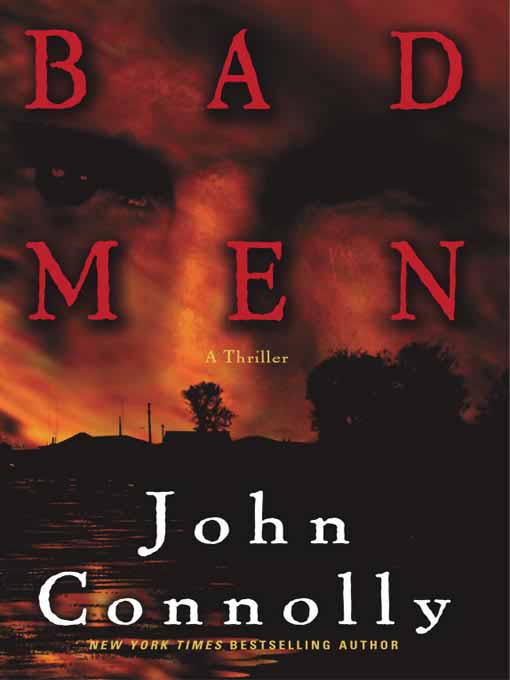
Dante Alighieri, Inferno, canto 31
Moloch dreams.
In the darkness of a Virginia prison cell, he stirs like an old demon goaded by memories of its lost humanity. The dream presses upon him once more, the First Dream, for in it lies his beginning, and his end.
In the dream, he is standing on the verge of a dense forest and a smell clings to his clothing, the scent of animal fat and saltwater. There is a weight at his right hand, a musket, its rough leather strap hanging almost to the ground. On his belt there is a knife, and a powder horn, and a bag of shot. The crossing was difficult, for the sea was wild and the waves broke upon them with the force of a great hand. They lost a man on the journey to the island, drowned when one of the bark canoes capsized, and a pair of muskets and a leather bag filled with powder and shot descended with him beneath the waves. They cannot afford to lose weapons. They are hunted men, even as they are become hunters themselves this night. It is the year of our Lord 1693.
Moloch, twisting on his bunk three centuries after the time of his dream, drifts between sleeping and wakefulness for an instant before he is drawn back into this world of images once again, slowly submerging, sinking deeper and deeper, like a man drowning in recollection, for the dream is not new, and its coming is by now expected when he lays his head upon the pillow and at last surrenders himself to its hold, his heartbeat loud in his ears, blood pumping.
And blood flowing.
He is aware, in the brief moment that he breaks the surface of his uneasy rest, that he has killed before, and will kill again. A conflation of reverie and reality occurs, for Moloch has slain in both dream and wakefulness, although now the distinction between the two realms has grown indistinct.
This is a dream.
This is not a dream.
This is. This was.
There is sand beneath his feet. Behind him, the canoes have been drawn up onto the shore and there are men around him, awaiting his command to move. They are twelve in total. He raises a hand to them and the whites follow him into the woods, the Indians breaking off and sprinting ahead of them. One of them glances back at him, and he sees that the natives face is pitted and scarred, one ear missing, a consequence of mutilation at the hands of his own people.
Wabanaki. A Wabanaki mercenary, an outcast. The Indian wears his skins with the hair turned inward, in accordance with the demands of the winter season.
Tanto, says the native, speaking the name of the god of ill will. The foul weather, the drowning, perhaps even the fact that he is here in this place, surrounded by hated white men, all are ascribable to the actions of the bad god. The Wabanaki is called Crow by the other men. They do not know his tribal name, although it is said that he was once a great man among his people, the son of a chief, a sagamore, and that he would have become chief himself had he not been exiled by them. Moloch does not reply, and the native follows his fellow scouts into the woods without another word.
Later, when he awakes, Moloch will wonder once more at how he knows these things (for the dream has been coming more frequently in recent months, and in ever greater detail). He knows that he does not trust the Indians. There are three of them, the Wabanaki and two Mikmaq with a price on their heads back at Fort Anne, vicious men who have pledged themselves to him in return for alcohol and weapons and the promise of rape. They are useful for now, but he feels uneasy around them. They are despised by their own people, and they are intelligent enough to realize that the men to whom they have attached themselves despise them too.
In his dream, Moloch decides that they will have to be killed after their work here is done.
From the trees ahead comes the sound of a brief scuffle, and moments later the Wabanaki mercenary emerges. There is a boy in his arms, no more than fifteen years of age. He is struggling against his captors grasp, his cries stifled by the natives large hand. His feet kick impotently at the air. One of the Mikmaq follows, holding the boys musket. He has been apprehended before he can fire off a warning shot.
Moloch approaches, and the boy stops kicking as he recognizes the face before him. He shakes his head, and tries to utter words. The native releases his hand from the boys mouth but keeps a knife pressed to his throat so that he does not cry out. His tongue freed, the boy finds that he has nothing to say, for there is nothing that can be said. No words can prevent what is about to occur. Instead, his breath plumes whitely in the cold night air, as if his essence were already departing his body, his soul fleeing the pain of what his physical being is about to endure.
Moloch reaches out and grips the boys face in his hands.
Robert Littlejohn, he says. Did they tell you to keep watch for me?
Robert Littlejohn does not respond. Moloch can feel him trembling beneath his hand. He is surprised that they have maintained even this level of vigilance for so long. After all, it has been many months since his enforced departure.
It strikes Moloch that they must fear him a great deal.
Still, they must think themselves safe if they leave only a child to watch the western approaches to Sanctuary. He eases his grip on the boys skin, and caresses it gently with his fingertips.
You are a brave boy, Robert.
He stands and nods at the Indian, and the Wabanaki draws the knife across the boys throat, gripping him by the hair to pull his head back so that the blade will have easier passage. Moloch steps back to avoid the arterial spray, but continues to stare into the boys eyes as the life leaves them. In his dream, Moloch is disappointed by the nature of the boys passing. There is no fear in his eyes, although the boy must surely have been terrified during his last seconds on this earth. Instead, Moloch sees only a promise, unspoken and yet to be fulfilled.
When the boy is dead, the Wabanaki carries him to the rocks above the beach and casts him into the sea. His body sinks from view.
We move on, says Moloch. They ascend to the forest, their footfalls carefully placed, avoiding fallen branches that might snap loudly and alert the dogs. It is bitterly cold, and snow begins to fall, driven into their faces by the harsh wind, but Moloch knows this place, even without the scouts to guide him.
Ahead of them, a Mikmaq raises his hand and the party halts. Of the other natives, there is no sign. Silently, Moloch creeps up to the guides side. He points straight ahead. Moloch can see nothing for a time, until the tobacco glows briefly red as the sentry takes a long draw. A shadow grows behind him, and the mans body arcs against the hilt of the knife. The pipe falls to the ground, shedding red ash on the dirt and dying with a hiss upon the newly fallen snow.
Next pageFont size:
Interval:
Bookmark:
Similar books «Bad Men: A Thriller»
Look at similar books to Bad Men: A Thriller. We have selected literature similar in name and meaning in the hope of providing readers with more options to find new, interesting, not yet read works.
Discussion, reviews of the book Bad Men: A Thriller and just readers' own opinions. Leave your comments, write what you think about the work, its meaning or the main characters. Specify what exactly you liked and what you didn't like, and why you think so.

